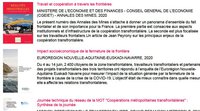TERRITORIES
A Franco-Italian accelerator dedicated to SMEs
January 2021The first Franco-Italian accelerator has just been set up. Its aim is to help French and Italian SMEs to work together to grow internationally.

The first Franco-Italian accelerator has just been set up. Its aim is to help French and Italian SMEs to work together to grow internationally.

Proceedings of the conference of the Compagnie Nationale des Commissaires Enquêteurs* (CNCE) of 4 March 2020.This event was an opportunity to take stock and to set out a number of observations regarding the future of public inquiry procedures in France, the timeframes of which have recently been reduced.

On 17 December 2020, the EU Council adopted the regulation laying down the EU’s multiannual financial framework (MFF) for the years 2021-2027. Combined with the “Next Generation EU” recovery instrument, it will enable the EU to provide funding of an unprecedented amount of €1,800 billion to support the recovery after the Covid-19 pandemic and the EU’s long-term priorities.

Having for centuries been areas of expectations, fears and conflict, European borders are now the subject of a Forum. It is a fine symbol. In these difficult times, solutions can only come from our ability to make cross-border areas places of convergence, trust and partnership.
Following on from the words of the Minister Jacqueline Gourault*, which give cross-border territories the role of “laboratories for the next stage of decentralisation”, serving as areas of experimentation at the forefront of territorial differentiation, the MOT wishes to elaborate with its network a joint position to incorporate the cross-border dimension into the 3D bill (Decentralisation, Differentiation and Deconcentration). This is due to be presented in the Council of Ministers in January 2021.

The first Borders Forum was a great success, with over 700 participants online throughout two days of discussions, on 9-10 November 2020. The event was organised by the MOT, in partnership with the European Commission and the European Committee of the Regions.

The aim is to capitalise on the experiences of cross-border regions. Cross-border citizens’ dialogues will be organised in collaboration with players involved in cooperation. On the basis of these, the CoR will adopt a resolution, which will form an official contribution to the Conference on the Future of Europe.
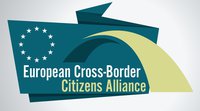
Launched in 2020 on the initiative of the MOT, the AEBR and CESCI, the Alliance now has the political support of the European Committee of the Regions (CoR).

At its plenary assembly in October, the Grand Est CESER adopted an opinion on cross-border civil society. The MOT had been formally heard as part of the preparation of this publication.
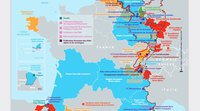
In order to keep abreast of territorial realities and remain as close as possible to its members, the MOT has launched several initiatives: a technical committee, working groups and a Europe-wide event (the Borders Forum). It is currently preparing its 2021-23 programme, with the objective of better adapting to local, national and European needs, and fostering its “modularity”. It was in this context that it organised, in September and October 2020, nine “territorial meetings”.
This study was undertaken within the framework of the legal component of the “AB Réfugiés” project, which is led by the province of West Flanders and funded by the Interreg France-Wallonie-Vlaanderen programme. In the light of the disparities in unemployment on either side of the Franco-Belgian border and the difficulties that can be involved in obtaining a residence or work permit, the study provides an analysis of the legal frameworks pertaining to these statuses and obstacles to mobility.

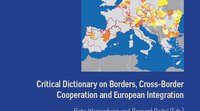
The "Critical Dictionary of Borders, Cross-Border Cooperation and European Integration" has just been published: a major publication that contains 209 articles written by 124 authors from different countries and academic disciplines, accompanied by 66 original maps produced by the MOT.

Mountain areas represent over 40% of France’s borders. Among France’s mountain ranges, three of them are located in border regions: the Jura, the Pyrenees and the Alps. This new brochure sets out their common cross-border issues and challenges, while also highlighting concrete cross-border projects.
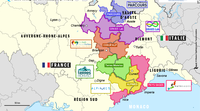
On 17 September, the concluding webinar of the Europ’Act capitalisation project entitled “What prospects for Franco-Italian cross-border cooperation initiatives in the Provence-Alpes-Côte d’Azur Region?” brought together more than 150 people. Organised by the Sud Region and run by the MOT, it aimed to take stock of six years of cooperation initiatives and to outline the Interreg programme for 2021-2027.

While the crisis initially provoked uncoordinated border measures, it also revealed interdependencies and gave rise to multiple forms of cooperation and cross-border solidarity, which now need to be organised and strengthened by European and national public policies that take full account of the specific nature of cross-border territories.

The MOT is hosting the first Borders Forum on 9-10 November 2020, on line: two days in which to demonstrate the central role played by cross-border territories in Europe, to persuade both European and national authorities to place them at the heart of their public action and to bear witness to France’s ambitions on the European stage in this area. Close-up on the programme for the first day, with Europe as the overarching theme .

Close-up on the second day devoted to cross-border territories along France’s borders. It will be opened by Jean Jouzel, climatologist and glaciologist and Member of the Academy of Sciences, with the aim of highlighting the diversity of these territories, going from from Dunkirk to Bayonne, by way of Nice, Geneva and Strasbourg, pointing out their specificities and discussing decentralisation, deconcentration and above all differentiation.

Focus on mountain territories, a topic on the agenda of Round table #8 "Metropolises, mountains, rural areas: what kind of cross-border cohesion?" of the Borders Forum, on 10 november.
To discuss these opportunities for the future of cross-border territories, join us for Round table#7 of the Borders Forum, on 10 November 2020: "Cross-border areas, differentiated areas?"
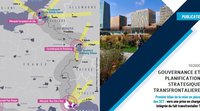
Following the adoption of the first four Cross-Border Cooperation Strategies (Schémas de Coopération Transfrontalière – SCT) by the Nice, Strasbourg and Lille Metropolises, as well as by the Basque Country Conurbation Community, the MOT and its partners embarked on the drafting of a preliminary assessment of these initiatives that has resulted in a publication, co-written with each of these groupings of municipalities.
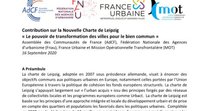
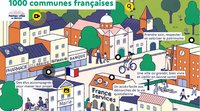
The national support programme for towns with fewer than 20,000 inhabitants and their groupings of municipalities was launched on 1 October by Jacqueline Gourault, the Minister for Territorial Cohesion, and Joël Giraud, Minister of State for Rural Affairs. The National Agency for Territorial Cohesion is in charge of setting it up and implementing it, in collaboration with the Banque des Territoires and its main national partners (the ANAH, Ademe, Cerema, etc.).
The vote on mass immigration (27/09/2020) is defeated by 63%.
